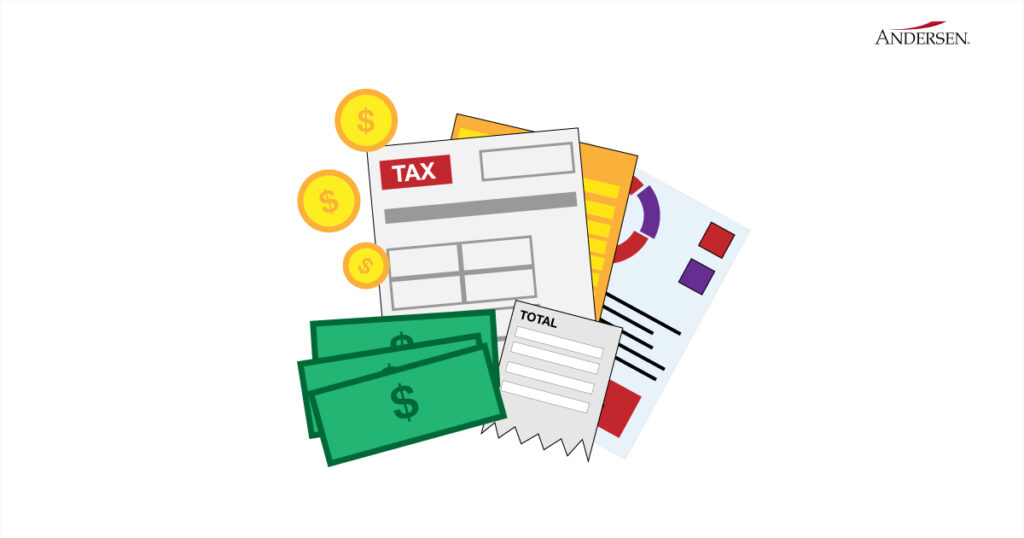Value-added tax (VAT) is one of the most essential taxes in Georgia. In 2024, VAT corresponded to 37% of the tax revenues of the Georgian budget. VAT plays a major role in Georgia’s fiscal policy and has strong potential to influence economic activity. This could be the reason why the VAT rate has remained unchanged since 2004 and accounts for 18% of taxable transactions.
To meet the requirements of the 2014 Association Agreement with the European Union, lawmakers amended the VAT section of Georgia’s Tax Code. As a result of these changes, Georgia aligned its VAT regulations with EU legislation—specifically the Council Directive 2006/112/EC of 28 November 2006 on the common system of value added tax.
One of the fundamental changes to the VAT regulations concerns its scope. Before the reform, VAT applied to any economic activity that intended to provide income or compensation. From 2021, as a result of these changes, VAT started to predominantly apply to those persons who carry out a repeated economic activity, independently and in an organised manner for profit.
Key Amendments to the VAT Rules
- Irregular activities, except for the supply of non-residential buildings, are no longer considered taxable
- Temporary admission of goods is no longer a taxable transaction
- A taxable person with a fixed establishment in Georgia must register as a VAT payer when starting a business
- Free delivery of goods is taxed only if VAT was deducted on them; taxed on cost basis, not market value
- Transfer/use of goods as samples or small gifts is not taxed
- Services/goods directly related to medical and educational activities are VAT-exempt
- The principles determining the place of service have been changed (see below)
General Nature of VAT
VAT is an incrementally assessed tax, meaning it’s added at each production or sale stage. For example, if a good purchased for €200 is improved by €400, VAT is charged only on the added €400.
What VAT Applies To
VAT applies to the following activities in Georgia:
- Supply of goods
- Supply of services
- Import of goods (temporary imports are no longer taxable)
Right of Deduction
According to the Tax Code, a VAT-registered taxpayer has the right to deduct VAT paid on purchases, as long as the purchased goods/services are used in VAT taxable transactions and provided the seller is also a registered VAT payer. This deduction system encourages businesses to register, making them more attractive as market partners.
Place of Taxable Operation
An operation is not taxed with VAT unless it occurs within Georgia.
Rules for Determining Place of Operation
- Supply of goods: Based on transfer of ownership or sender’s location (for transported goods)
- Supply of Services: As a general rule, the place of supply of services is:
- B2B: Place of buyer’s establishment
- B2C: Place of seller’s establishment
However, there are certain exceptions to the general rules, such as:
- Place of supply of services related to immovable property: Based on the property’s location
- Place of supply of Digital B2C services: Place of the buyer’s establishment
- Place of supply of professional B2C services: (legal, accounting, consulting, marketing): Place of the buyer’s establishment
- Place of supply of restaurant services: Based on the place of actual performance of services
Taxable Amount

The taxable amount is the payment received for goods/services, excluding VAT. It includes:
- All other taxes (except VAT)
- Transportation, insurance, commissions
- Excludes discounts and seller-incurred costs
In the case of barter transactions, the taxable amount is the market value (excluding VAT) of the goods/services received.
Time for the VAT Tax Operation
VAT is due at the time of supply of goods or services. If an advance payment is made, VAT liability arises upon that payment, within the same reporting period. For continuous services, such as a lease, the VAT is due on a monthly basis. Failure to pay on time results in penalties.
VAT Rate, Tax Period, and Reporting
- VAT Rate: 18%
- Tax Period: Calendar month
- Declaration Deadline: 15th of the month following the reporting period
- Payment: Due by the same date
Transactions Exempt from VAT
Some transactions are VAT-exempt, including:
- Supply of land
- Financial operations and services
- Medical and dental services
- Educational services by institutions
- Gambling and lottery services
- Import of cars, motorcycles, mopeds, bicycles
- Import of goods for medical purposes
Understanding VAT in Georgia is vital for businesses and investors aiming to thrive in this dynamic market. Whether you’re launching a startup or expanding your operations, staying compliant with the new VAT rules can protect your bottom line and open doors to smoother trade within Europe.
For official resources and tax filing information, visit the Georgian Revenue Service.

